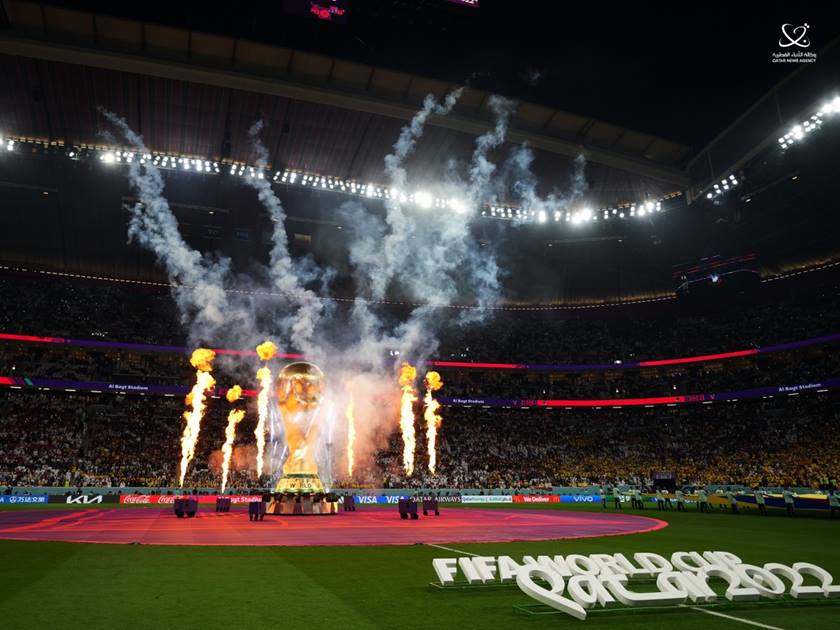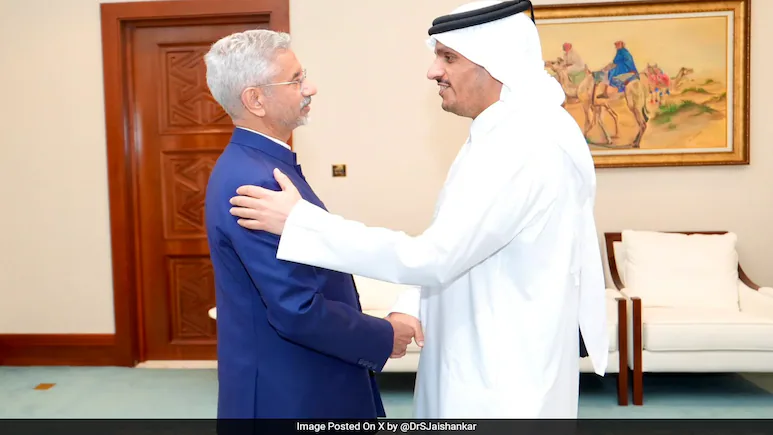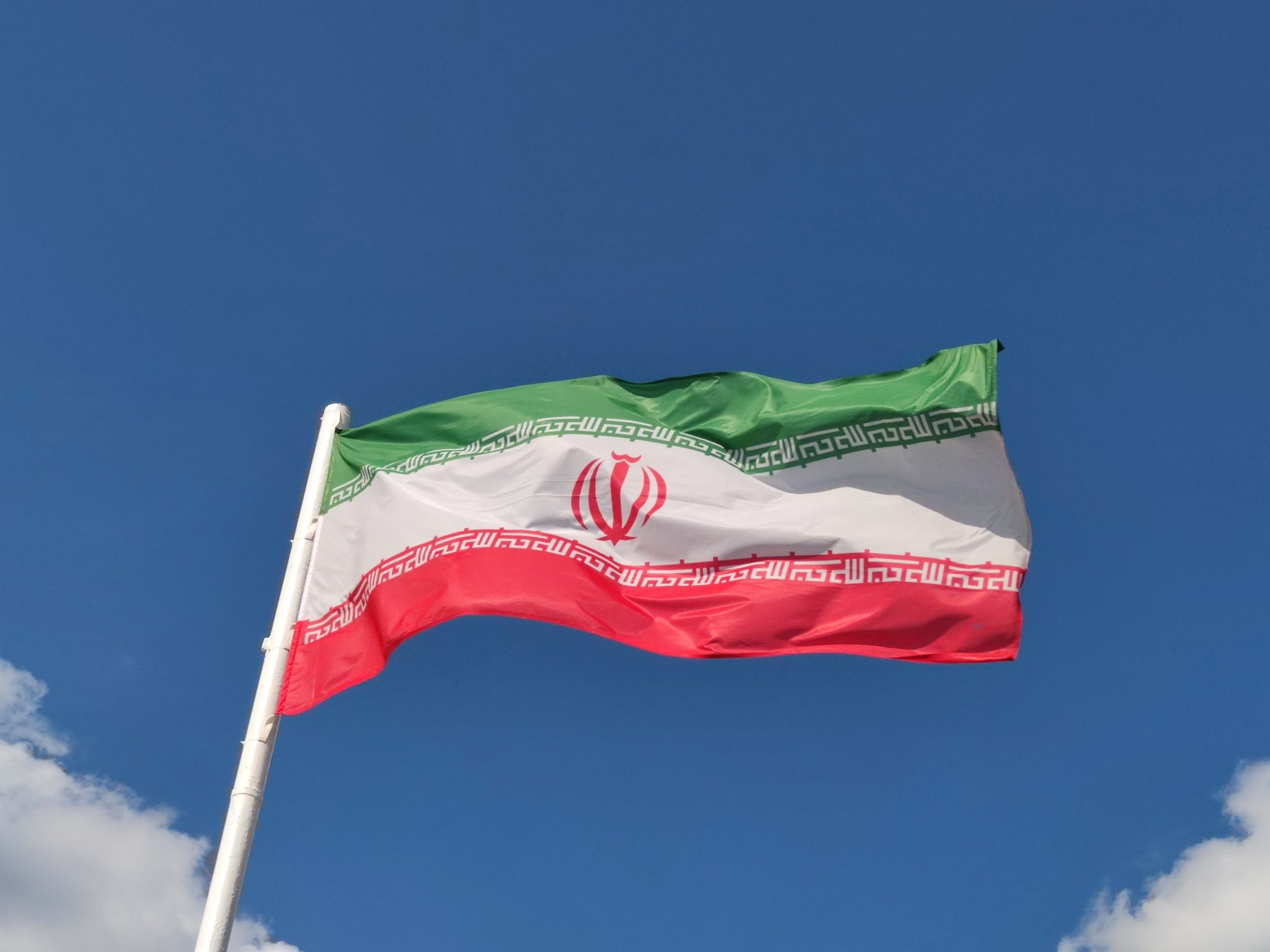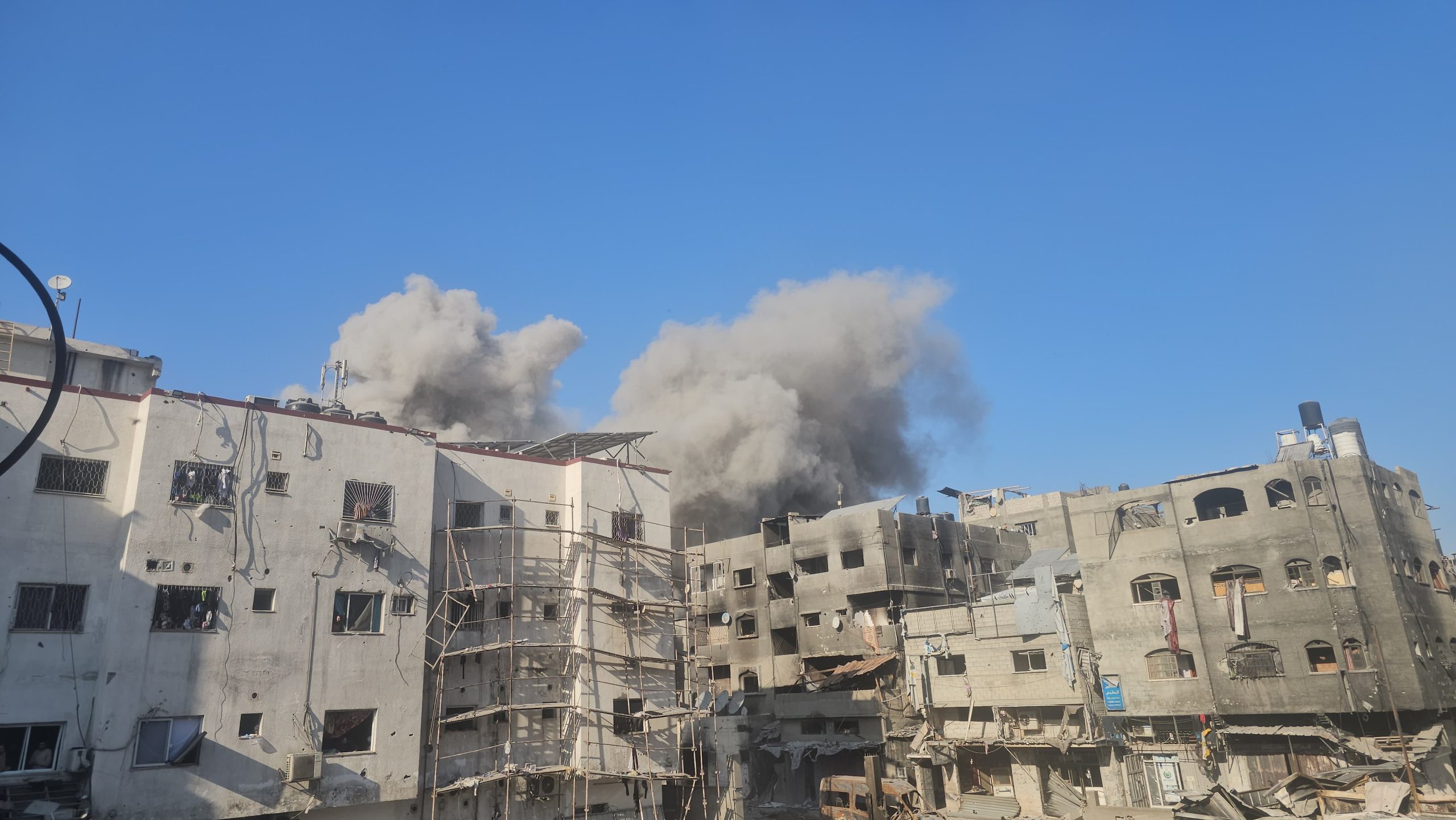Doha News learned from a source that some German media outlets came with a plan to vilify the Gulf state during the tournament.
All eyes were on Qatar over the last month as it opened its doors for the FIFA World Cup 2022, a historic tournament that was in the end bombarded with media coverage from the Western world that sources say was a calculated strategy.
While on the ground, fans from around the world came together to embrace a melting pot of cultures at the Middle East’s first ever FIFA World Cup, western media reports that emerged throughout the tournament attempted to show a more tainted depiction of the event.
Qatar had maintained that it would use its role as the first Arab and Muslim nation to host the World Cup as a portal through which the rest of the world would learn about the Middle East and Islam.
Despite ample challenges and doubts over its readiness to host the event, the Gulf state went on to host what has been dubbed globally as “the best”’ edition of the World Cup in FIFA history. While the tournament showcased the true spirit of sports as well as values of the Middle East and Islam, however, it also unveiled mass western-led racism, Islamophobia and a clear double standards approach to dealing with human rights.
Snubbing coverage
Criticism targeting the Gulf state evolved since it first started with Qatar’s 2010 bid to host the World Cup. Such scrutiny went from focusing on its geographically small size, to violations against migrant workers, to more cultural-based policies regarding the LGBTQ+ community.
In the months leading up to the tournament, officials from Qatar and beyond pointed to what they described as racist and Islamophobic roots for such criticism. While such claims were dismissed by critics of Qatar, it soon became clear that there was more to western ‘concerns on human rights’.
In the United Kingdom, major national television channels opted to shun the World Cup opening ceremony which served as an introduction to the Arab world. The BBC and ITV were at the centre of criticism from their viewers for snubbing the global event at the time.
Instead, the BBC showed a news package presented by Gary Lineker in which he slammed Qatar’s human rights record, regurgitating figures on migrant worker deaths have already been dismissed as misleading.
The BBC alone received almost 1,500 complaints from furious viewers, with many pointing to a lack of similar action against other previous host countries with an alarming human rights record, namely Russia.
Dr. Khaled Al-Hroub, professor of Middle Eastern Studies at Northwestern University in Qatar, told Doha News that the use of Qatar’s alleged human rights record in such coverage decisions “is just a hollow argument.”
“This is not to say that human rights in Qatar are perfect, but what was shocking is the embedded Orientalism and racism that marred the coverage of some Western media – and of course not all of them,” he said.
Pre-planned campaign
While on the ground, millions of fans enjoyed what -ironically- BBC viewers voted as the best World Cup of the century, ample headlines that were published throughout the tournament were loaded with racism and Islamophobia.
Sources privy to the matter told Doha News how some German media outlets which travelled to Qatar to cover the event “went with the intention to vilify the Gulf state”.
Speaking on condition of anonymity, the source said staff members from the outlets appeared to have no background knowledge of Qatar and specifically focused on negative coverage.
“It was more of a smear campaign than actual journalism. Whenever Qatar played, whether it was the opening match or the other two matches they had, they would not talk about the football team’s skills or predictions for the match, they would only talk about the human rights violations,” the person said.
The source added that the entities “never shied away from their intentions” and even bragged about it, adding “the air of white saviour complex never seemed to leave the newsroom.”/
Such claims have been backed by analysts who said they were contacted by some European journalists to speak about Qatar. When the analysts provided a positive or neutral response, they were quickly shut down.
This was the experience of Khaled Beydoun, law professor at Wayne State University in Detroit and the Berkman Center at Harvard.
“Some of them provided me with bullet points of what they wanted me to emphasise, labour rights, LGBTQ issues, the fact that Qatar is an authoritarian country,” Beydoun told Doha News, describing some of the entities as prominent media institutions.
Beydoun pointed to evidence of what he described as a “strategic” and “diabolical effort” by western media outlets “to smear, critique, condemn the entire World Cup.”
“I think even more nefariously capitalise on Arab and Muslim voices like myself to sort of cover or guise their racism and Islamophobia,” Beydoun said.
Beydoun explained that the media in the United States and “many European countries” are “vulnerable to both corporate and state influence.”
An incident filmed in Qatar showed an altercation between a Frenchman and a journalist from France’s RMC after the latter refused to complete an interview with the fan due to his neutral review of the World Cup.
The journalist then proceeded to physically and verbally attack another man who was filming and narrating the incident.
Meanwhile, a British journalist said he was instructed to dismiss positive stories while covering the FIFA World Cup in Qatar.
“Good stories about the World Cup weren’t wanted. Freedom of the press, eh?” the journalist said, questioning press freedom in the UK.
Dimming Morocco’s light
In what transpired to be a World Cup of firsts, Morocco made global headlines for its historic performance.
The Atlas Lions became the first ever African, Arab and Muslim country to reach the semi-finals in the history of the FIFA World Cup. The Moroccan team captured the hearts of fans all over the globe due to the players’ bold show of Islamic and Arab values on the pitch.
After every match, the players were filmed running straight to their mothers to celebrate victories. They were also quick to prostrate on the ground- a gesture that reflects the Muslim prayer and signifies gratitude to God.
While for many around the world this moment reflects a positive show of Muslim values, some outlets still found a way to criticise the Moroccan team.
For Danish channel TV 2 News, this was a chance to turn the moment from one worth celebrating to an outright racist attack, comparing the players and their mothers celebrating with monkeys. The shocking segment involved anchor Soren Lippert holding up an image of monkeys embracing.
Days earlier, a German television anchor compared the Moroccan players with the Islamic State militant group (ISIS).
The Welt anchor showed an image of three national team players after a successful World Cup game, in which they raised their index fingers. This is a common gesture for billions of Muslims around the world who praise God by professing the concept of Tawhid, or ‘Oneness’.
However, the anchor likened the players to ISIS, claiming the gesture caused “irritation”.
Speaking to Doha News, Rayan Freschi, researcher at London-based advocacy organisation CAGE said the tournament provided a realisation for the western world.
“Some western States are currently realising how their international influence is slowly receding and are trying to find ways to keep their status.
“For some – like France – Islamophobia is recognised as a means towards achieving a stronger, more resilient and influential international status,” he said.
Another Western outlet published a caricature showing Moroccans in tracksuits on a motorbike ‘stealing’ the World Cup trophy from FIFA President Gianni Infantino.
Many had described the cartoon as a racist European stereotype of North Africans being ‘thugs’ and ‘criminals’.
“I think it’s not the job of the world cup to tackle Islamophobia as such, but what Qatar’s world cup has done is even greater than that. This world cup has defended the ‘worldism’ of the World Cup, against a narrow implicit perception that this is a ‘West cup’,” Dr. Al-Hroub said.
Attire criticism
The campaign reached its pinnacle on the day of the final when Qatar’s Amir Sheikh Tamim bin Hamad Al Thani honoured Argentine’s “greatest of all time” Lionel Messi with the traditional bisht, or black cloak as he was given the trophy.
The garment has for decades been worn in the Arab world and has particularly gained prominence as a valuable piece of clothing in the Gulf region.
Confused over the symbolic move, BBC pundit Pablo Zabaleta at the time asked “Just why? There’s no reason to do that.” While BBC host Lineker said it was “a shame they’ve covered his shirt” during what was “a magic moment”.
Almost instantly, headlines bashed the bish, with some saying it “ruined the greatest moment in World Cup history”. Another Australian outlet accused Qatar of “hijacking” Messi of his moment – a loaded term in the aftermath of 9/11.
Freschi says one of the positive aspects of the World Cup was the effort encouraged by the organisers to propagate Islam, however, it cannot be credited for denting the global phenomena that is Islamophobia.
“Islamophobia being widely accepted culturally and sponsored at the state level, its presence and pervasive influence remains the same. It expressed itself with caricatural intensity through the ‘bisht controversy’, for it has no tolerance for any perceived external expression of Islam, islamic or Arab culture,” Freschi said.
In an opinion piece for Doha News, Beydoun noted the use of the derogatory term for Arabs in particular.
“In arrogant fashion, ignorant voices from the swollen belly of Europe undress these symbols of their genuine meaning, and dress them with stereotypes tied to violence and oppression, ‘hijacking’ and horror,” Beydoun wrote.
Echoing similar sentiment, Dr. Al-Hroub said the coverage of the bisht showed “the depths of 19th century classical Orientalism and racism.”
“On the bright side of things, one should say that these voices were minority and many decent media and voices in the West showed respect and understanding,” Dr. Al-Hroub said.
Even prior to the bisht, Qatar’s traditional attire was mocked despite being widely embraced by millions of fans throughout the tournament, both in the stadiums and streets.
Last month, German commentator Sandro Wagner described the traditional white Qatari men’s clothing as “bathrobes”.
Amid the flood of criticism, fans and officials globally agreed that the Qatar World Cup broke barriers between the East and the West—thus, making it what many described as the best in the tournament’s history.
“I think the great significance and contribution of Qatar’s world cup, from the perspective of seeking a multicultural world that genuinely cherish mutual respect, comes exactly from this point,” Dr. Al-Hroub said.
“Non-Western cultures and peoples should have a say that reflects their weight and demographics in defining what is a ‘world’ event,” he added.
For Freschi, there clearly has been a shift in world power.
“If the organisation of a WC cannot seriously be regarded as proof of strength and dominance, it certainly indicates a decreasing gap between nations once perceived as being part of the ‘Third World’ and the West,” he said.







